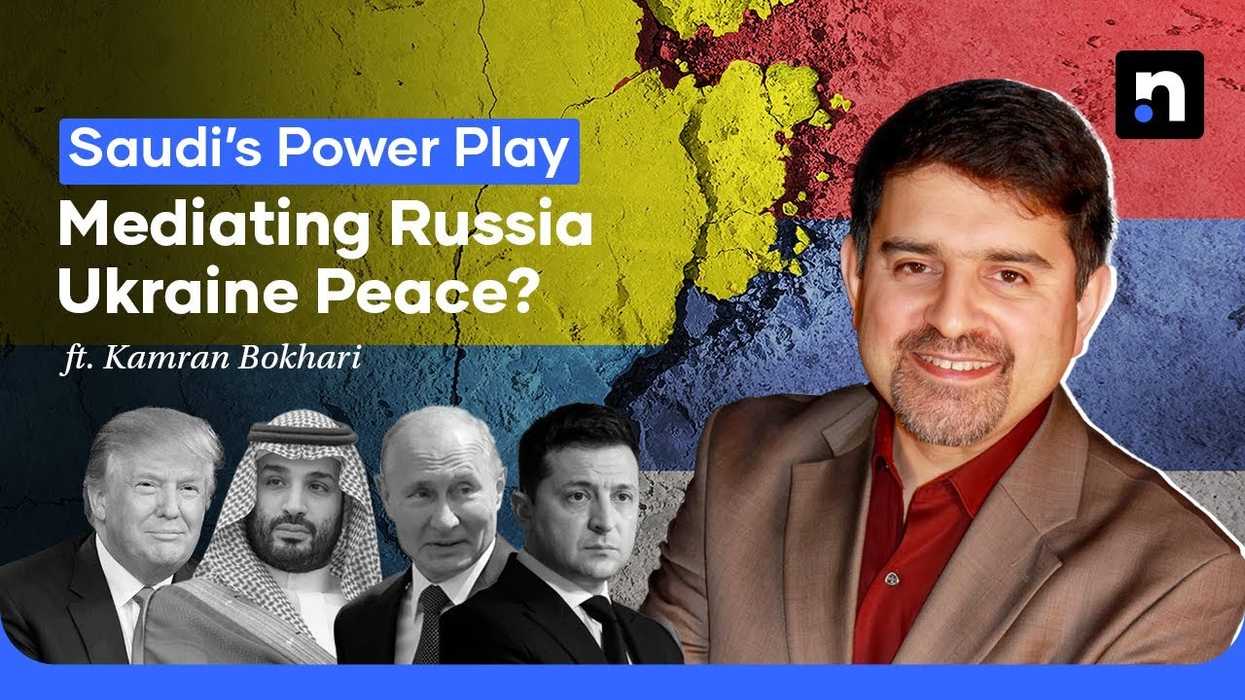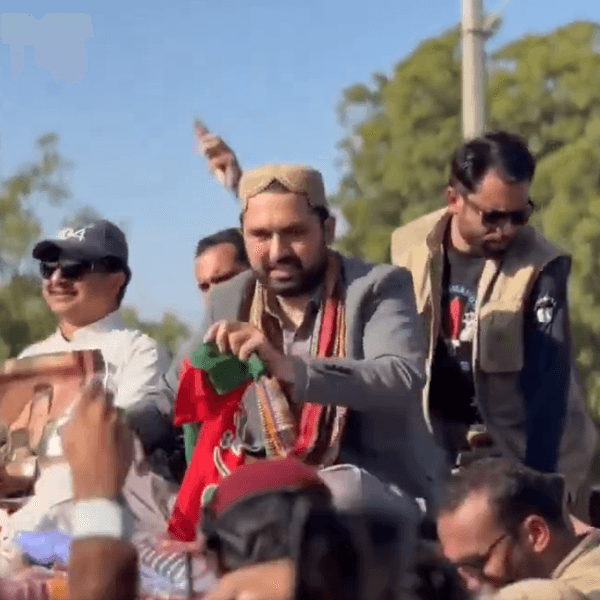An unexpected mediator? Saudi Arabia takes center stage in Russia-Ukraine peace talks
Kingdom's role in brokering peace talks unveils evolving position in international affairs

Laiba Zai
Producer, News Desk
Laiba is a multi-media journalist, passionate about American politics and digital rights. She has a degree in social sciences from IBA, Karachi.
Kingdom using diplomacy to expand its geopolitical footprint
Mediation efforts align with Saudi Arabia’s Vision 2030
Saudi Arabia leveraging ties with both Washington and Moscow to enhance global influence
A surprising mediator has emerged in the Russia-Ukraine conflict—one far removed from Eastern Europe’s battlefields and Western political circles. By positioning itself as a peace broker, Saudi Arabia has raised questions about why the Middle Eastern nation is navigating one of today’s most complex geopolitical crises.
Mediation efforts
The latest development saw delegations from the U.S. and Russia, including U.S. Secretary of State Marco Rubio and Russian Foreign Minister Sergei Lavrov, meeting in Riyadh to discuss ending the war. Notably absent were Ukrainian representatives, prompting criticism from Ukrainian President Volodymyr Zelensky, who condemned his country’s exclusion from the talks.
However, this is not Saudi Arabia’s first attempt at facilitating a dialogue. In August 2023, the Kingdom hosted talks on the Ukraine war, attended by representatives from nearly 40 countries but not Russia, according to Ukrainian organizers. Although the summit in Jeddah produced no concrete outcomes, it provided a platform for discussions on Ukraine’s territorial integrity.
During the broadcast of the 79th session of the UN General Assembly, Saudi Foreign Minister Prince Faisal bin Farhan Al Saud actively called for an end to the war between Russia and Ukraine, affirming readiness to continue mediation efforts.
While these diplomatic moves have yet to yield significant progress in resolving the conflict, they have placed Saudi Arabia in the international spotlight, highlighting its evolving role in global diplomacy.
How did it begin?
"In the last 10 years since the US started nuclear negotiation in earnest with Iran, that sort of led to a divergence between Saudis and the Americans and Saudis began to explore their capacity to conduct foreign policy in the region (Middle East) and beyond," said Kamran Bokhari, Vice President of Middle Eastern & South Asian Affairs at Stratfor, USA.
The 2015 Joint Comprehensive Plan of Action (JCPOA) aimed to curb Iran’s nuclear program in exchange for sanctions relief. Saudi Arabia argued it should have been included in the talks due to its security concerns. The deal faced setbacks, especially after the U.S. withdrawal in 2018.
In early 2023, UN inspectors found uranium in Iran enriched close to weapons-grade levels, heightening global concerns. Iran’s continued nuclear advances led to renewed sanctions, further weakening its economy. "Iran has been weakened in the region. For the moment and for the foreseeable future," Bokhari noted.
For Saudi Arabia, this shift presented an opportunity. "The Saudis want to be able to consolidate on that. They knew that Iran had far more military prowess than they did, and Iranians are wired in a way that makes them an offensive power. The Kingdom, on the other hand, is a conservative power reliant on the US for its security. There's a resetting of those relations, that's happening."
Saudi Arabia’s mediation in the Russia-Ukraine conflict is, therefore, part of a broader strategy to expand its diplomatic role.
A neutral player?
As the world's top oil exporter, Saudi Arabia wields significant influence over energy prices and production. Its collaboration with Russia in managing oil supply led to the formation of OPEC+, a coalition uniting OPEC and non-OPEC producers.
"Being such a large producer of crude, gave Saudis leverage with Russia because Russia is also an oil producer," explained Bokhari.
With direct ties to both Washington and Moscow, Saudi Arabia emerged as a rare channel for dialogue between the two rivals, free from NATO influence.
"Russians needed that third party, that convenor to mediate between the two parties. It wasn't possible for Russians to go to the United States or for the U.S. to come to Russia. Europe wasn't seen as a neutral convenor," Bokhari added.
By hosting the recent talks, Saudi Arabia leveraged its strategic position to expand its influence beyond the Middle East, reinforcing its image as a rising global mediator.
Strategic and political gains
The Kingdom, historically reliant on oil, has been working to diversify its economy under Vision 2030, led by Crown Prince Mohammed bin Salman.
Expanding its geopolitical footprint strengthens Riyadh’s leverage in global affairs, supporting its economic diversification goals. "If you expand your geopolitical strategic footprint in the world, it gives you leverage to be able to help diversify, meet your long-term imperative of diversifying your economy," the academic noted.
Saudi Arabia’s growing diplomatic role aligns with shifting U.S. priorities. With Washington focused on Gaza and regional stability, Riyadh is stepping up to fill the leadership gap.
The U.S. considers four key players in the Middle East—Turkey, Iran, Saudi Arabia, and Israel—and must balance their competing interests. "The Saudis are inserting themselves increasingly, historically being a weaker player. And they know that if they have to play a greater role, then they will need to put their money where their mouth is," Bokhari said, pointing to Saudi Arabia’s financial commitment, including post-war reconstruction in Gaza.
Riyadh is also navigating regional power shifts. With Iran weakened in the Levant and Turkey asserting influence, Saudi Arabia aims to consolidate its position while preventing Turkish dominance in Syria. Bokhari noted that this extends beyond the Middle East, as Riyadh also seeks to mediate between the U.S. and Iran—a role traditionally played by Qatar and Oman.
By hosting the latest Russia-Ukraine talks, Riyadh has positioned itself at the center of major global negotiations.








Comments
See what people are discussing